This is the definitive guide to dental implants in 2024.
So if you want to:
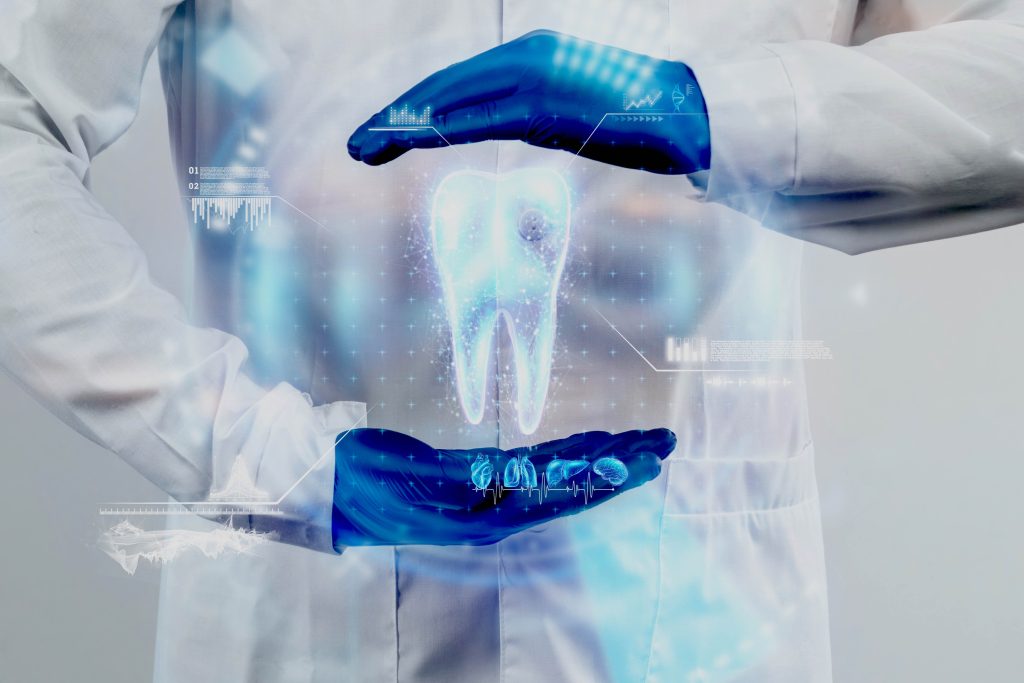
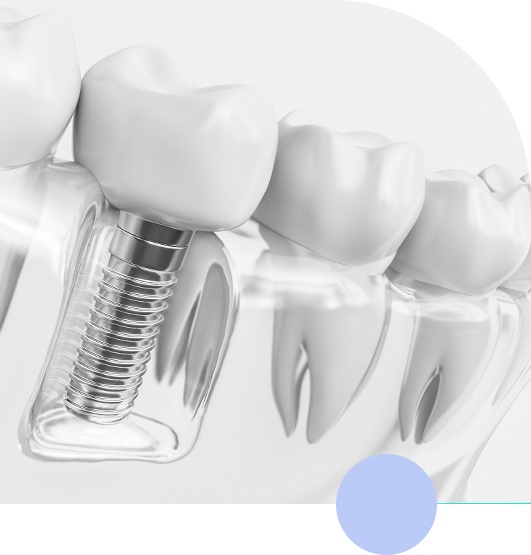
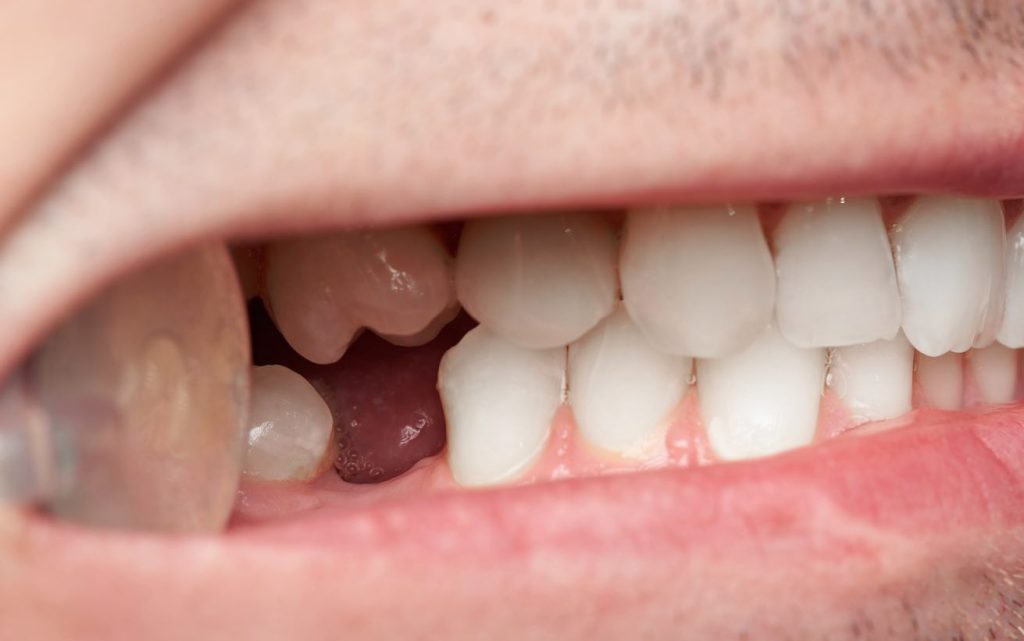
Here’s where the dental implants come in. As well as strengthening your jawbone with the installation of the implant post, the dental implant crown will take the place and function of the missing tooth, and look exactly like a real tooth too.
You will be able to smile with confidence again and also chew and speak properly without having to compensate for a gap in your mouth. If you’re worried about dental implants being painful, our patients will agree that they are more than worth any temporary discomfort you might feel shortly after the surgery.

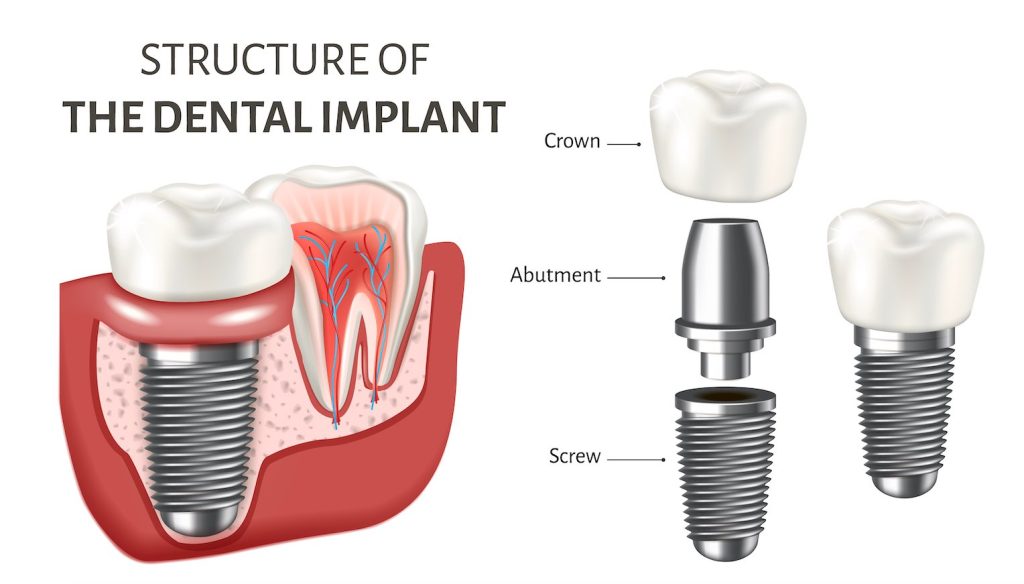
Dental implants, or tooth implants, work by replacing a lost tooth, or series of teeth with a permanent prosthetic.
The titanium implant portion of the prosthetic performs the same function as a tooth’s roots by holding the abutment and tooth crown in place when secured inside the jawbone. The typical steps taken for a single tooth implant are as follows:
As the artificial crown is attached to the post in your jawbone, these false teeth won’t move or fall out, performing exactly as a real tooth would. Get ready to smile and eat better than ever with brand new teeth!
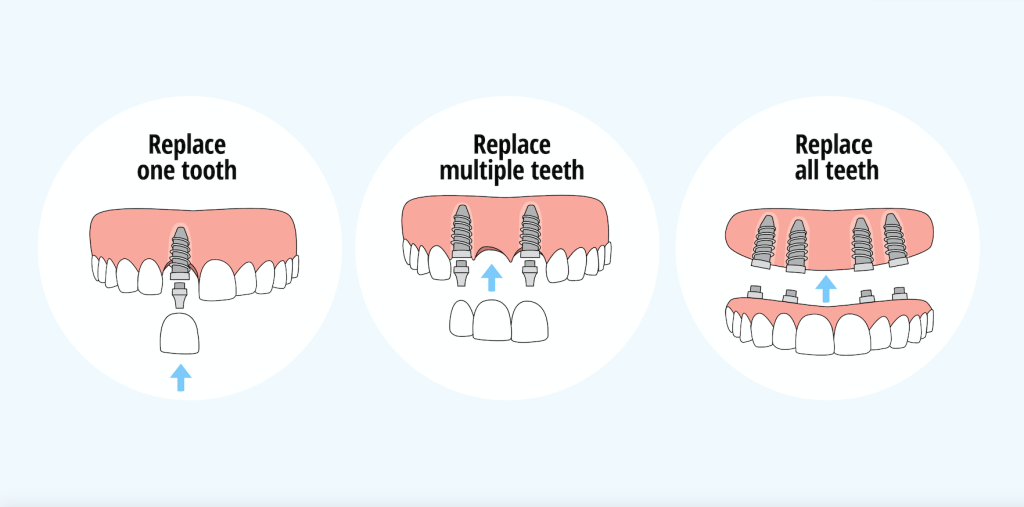
If you’re considering dental implants to replace a single, multiple or all missing teeth, you need to be aware of the timeline as it will take several visits to your dentist. Although it depends on the individual patient and the number of implants needed, it will take several months from the initial consultation to the finished product. Here’s a general rundown of what you can expect.

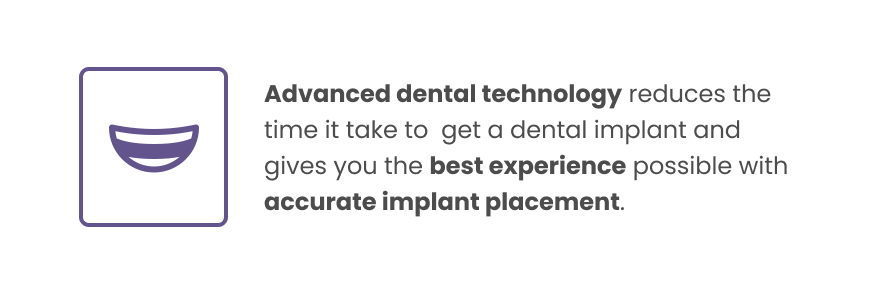
These are some factors that could speed up the process:

Cost is always a factor in any dental decision and with dental implants, the cost varies depending on the number of implants needed and the amount of any necessary preparation work, such as tooth extraction and bone grafting.
For a single tooth implant, a dentist can carry out the procedure for the comparable price of a fixed bridge, so you get all the advantages of the dental implant for almost the same price.
As dental implants are usually considered a cosmetic procedure, it’s unlikely that the cost will be covered by dental insurance, although some providers may cover a portion of the procedure.
Check your policy details or contact your provider directly to see if any part of the dental implant procedure will be covered.
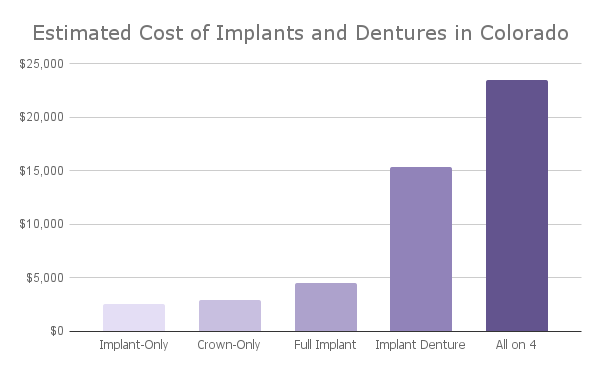
Usually, the patient will be required to cover the full cost of the dental implant procedure. Due to the materials used, time taken and procedures required, this can be expensive.
Most implant dentist work with patients to set up payment plans if necessary and also accept payment through programs such as CareCredit, a healthcare credit card.
Find out the answer to “how much do dental implants cost?” and more information on exactly what goes into the cost of dental implants. Believe us and our patients when we say that they are more than worth the cost.
With proper care, your dental implants will last a lifetime. That’s why they are recommended by dentists as the best solution to missing teeth. It is important to prioritize other parts of oral health such as visiting the dentist. They can help ensure the implant is good shape.
While the implant can last a lifetime, the crown may only last 15 years before it needs to be replaced.
Any surgical procedure carries the risk of infection although for dental implants, this is a rare occurrence.
Other health risks that are associated with dental implants are damage to other teeth, prolonged bleeding, or nerve damage. These risk, like that of infection are very low. Callahan and Klein’s digital imaging and custom made surgical guides drastically decrease these risks as well.
Cost may be a factor in putting some people off getting dental implants although payment plans and options such as CareCredit are available.
Titanium or titanium alloy posts are commonly used for dental implant surgeries every day. This metal is used for its biocompatibility, meaning there are no issues with it bonding with your jawbone. Titanium alloy implants are also commonly used in other parts of the body due to its resistance to corrosion and the speed of bone attachment. There aren’t any metal-free alternatives to dental implants at this time.
In most cases, your dentist will add temporary crowns to cover the implants while they heal. While these temporary crowns should look and function like normal teeth, you need to be careful when eating hard or sticky foods. Maintain a good brushing and flossing routine but be gentle around the temporary crowns.
While the implant heals and becomes bonded to the jawbone, it is essential to maintain good oral health practices such as brushing twice a day and flossing at least once a day.
No, dental implants are metal posts that are permanently fixed to your jawbone. Between the time of the implant placement surgery and when the permanent crown is attached, the jawbone actually fuses to the metal implant.
many people wonder if the implants are removable if it isn’t placed correctly and while there are corrective procedures, the risk of this happening at Callahan and Klein is absolutely minimized due to the custom, precisely made surgical guide Dr. Klein uses to get the implant exactly where it needs to go.
If the crown gets damaged, this can be replaced with a new crown but the implant will remain in place.
Patients at Callahan and Klein Dental in Lakewood, CO report that getting dental implants did not hurt as much as anticipated. In fact, extracting failing teeth caused more discomfort than the implant surgery.
During the surgery itself, local anesthesia will be used to numb the area where the surgery is taking place. Patients may feel pressure during the surgery but won’t feel any pain.
You will probably feel some soreness or swelling after implant surgery, however, this should decrease after 2 or 3 days and you can take over the counter pain medication if necessary.
Dental implants are a natural looking, safe, effective solution to missing teeth. They will fix your smile and protect your oral health.
Casey Klein, DDS
Bianca Badaro, DMD

CK Family Dental © 2024 All Rights Reserved